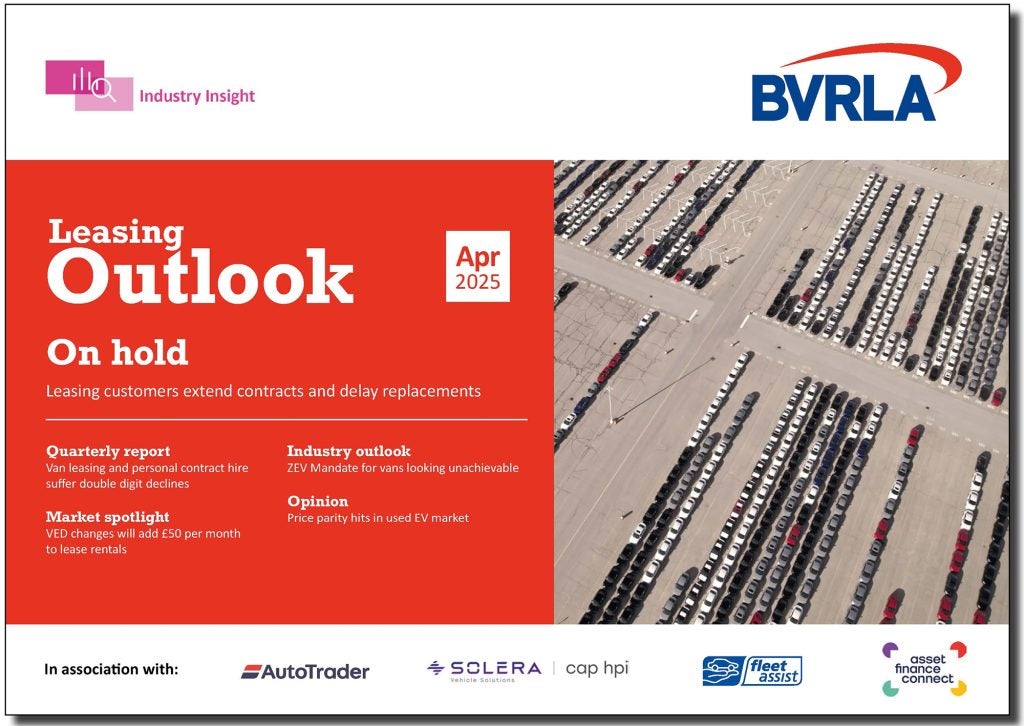
As the regulatory load increases, the pressure to increase efficiency grows with it, but the collections sector of the motor finance industry is actually benefiting from these changes, as Chris Farnell finds out
The automotive collections sector is seeing growing volumes, even as newspapers are publishing panic stories about PCP contracts and a “new credit crunch”.
However, if you take a closer look, the reasons for the growth in the collections sector are far more pedestrian.
“What we’re seeing is an ongoing rise in volume across most of our client base, not driven by a rise in delinquency rates but because clients are writing more business. That seems fairly consistent,” explains Simon Shuttleworth, managing director of Peak Collections.
Indeed while ‘collections’ is seeing increased activity, the real picture of that activity is a far more nuanced one than a simple rise in the bailiffs being sent round.
As Melanie Chell, partner at Shoosmiths, explains, the term ‘collections’ is a very broad umbrella.
“Generally speaking, if I look at my team, we do everything from live collections, with a customer who has the car but there are arrears, right through to litigation, and if you look at the spread of work the growth area appears to be in collections,” she explains.
If anything, the increase in activity is born out of a desire from the motor finance sector to avoid litigation.
“Motor finance clients are focusing much more on trying to collect and engage with the customer earlier in the process and less in litigation; five years ago, everything was litigated,” Chell notes.
“We’re now deploying strategies that can collect money and engage with the customer, and clients understand that litigation can mean court delays.
“The new debt protocol last year means the timeline has been extended before we are able to issue, and customers are getting more time. The whole process takes longer and is more costly, so alternative strategies are key.”
Compliance Challenge
It is no surprise that, when asked about the biggest factors affecting the collections sector at the moment, the immediate answer is compliance.
“It continues to be compliance,” Shuttleworth notes. “The new General Data Protection Regulations (GDPR) are coming in May this year, and we’re just transitioning our ISO 90001 accreditation to the new standard, while building in all the GDPR.”
While Shuttleworth is broadly positive about the relationship between the FCA and the industry, compliance – sticking to the letter of the law – has created occasional issues.
“In human resources, you have implied information to handle your employee data so that you can pay them,” Shuttleworth points out. “But under GDPR they can withdraw that, so we need to ask them all again. But overall, it’s a positive thing for the industry.”
On the regulatory front, the FCA has also been showing particular interest in the motor finance sector following the scare stories in the press last year, but it is a focus that has been largely welcomed by the industry.
“Obviously, the FCA has been very interested in motor finance over the last year, and so have journalists. There’s been a lot of hype around PCP deals, which I think the FCA has tried to address in its most recent paper,” Chell says.
“It has had a look at PCPs, and as far as it is concerned it would appear finance companies have taken a prudent approach to calculating guaranteed future value, and there’s not a big credit risk looming.”
Of course, that confidence does not mean complacency, and Chell is very aware of the ways consumer habits are changing and their implications for the sector.
“A lot of PCP deals are being written, which in turn increases the potential for customers to voluntarily terminate – particularly if customers get halfway and decide to change,” she admits.
“I think that reflects consumer behaviour across the credit industry. The younger generation aren’t so worried about owning things. Two years into a four-year PCP, they’re thinking ‘I want another car now’.”
Driving Professionalism
The ever-increasing need for compliance is affecting the industry in other ways too, with the increased regulatory burden having an impact on which companies can afford to enter and remain in the market.
“We are seeing an increase in focus on compliance, particularly as a result of the FCA looking at the industry. Some newer entrants into the market are focusing on front-end lending and deciding to outsource their collections and recoveries operations,” Chell explains.
Shuttleworth sees the requirements as a boon for customer confidence for the companies that can meet those requirements. He tells Motor Finance: “It further enables companies like us that can meet those standards to reassure customers.”
Smaller companies may have to seek business elsewhere however. “In terms of collections models, margins have been squeezed over the last few years, particularly when the billing structure is contingent – commission-based,” Chell says
“It is no longer possible to just have a collector sitting on the phone collecting money, all kinds of oversight is going on in the background.
“We have a business assurance team checking phone calls and customer journeys, call calibrations, training, compliance teams – the second line of defence.
Chell continues: “Checking the checkers, client audits, complaints handling and all of that comes at a cost and squeezes margins. So, a small player would find it increasingly difficult to offer a safe pair of hands and compete with the wider operational offerings within larger organisations.”
The end result is a positive one for the consumer, however, and the business sector as a whole.
Shuttleworth explains: “It forces professionalism up. It makes everyone look and review practices, and think ‘if someone walks in tomorrow am I comfortable to show them everything?’ The barriers to entry are huge compared to what they were, but I don’t think that’s a bad thing, necessarily.”
The atmosphere across the industry is one of optimistic collaboration for those who are able to meet the regulatory requirements.
“The industry and FCA appear to have a good relationship, as evidenced by the paper it released a couple of weeks ago,” Chell says.
“It does a good job of showing that it understands the issues facing the industry and can put some context to what it’s looking at it. The FLA very ably represents the industry and works closely with the FCA to ensure it understands the commercial and potential customer impact of potential changes.”
Widening the Margin
While most of the industry welcomes the transparency and trust that comes with FCA oversight, as Chell points out, that comes with a greater burden that squeezes profit margins and creates more work.
The industry is responding by finding more ways to streamline and create greater efficiencies. For Peak Collections, technology is playing an important role in this.
“The app is now embedded and operational and from the conversations we’re having with our clients it already plays a huge part in streamlining processes,” Shuttleworth says.
“So we’re now in a position where, because we have a lot of system integration with clients, I can come in this morning to see new pages have loaded into our system, they’ve been allocated to an agent, and all that data has gone through, raised the invoices, and the delivery report has been sent, all without us even knowing it until there’s an action to review and close the case – and more and more clients are looking for that.”
Peak Collections’ app is playing a crucial role in helping to alleviate the pressure that heavier regulation is putting on the sector.
“Most of our larger clients are focusing on system integration. It takes out human error, lets us streamline so much, so we’re just working with our smaller clients to put those systems in place. With a minimum of tweaking at their end, we can adapt our systems to achieve that,” Shuttleworth says.
“It’s all about efficiencies at the end of the day. Rates are stagnant and the additional cost burden of these systems is huge, but it has to be efficient.
“We only want to manage exceptions. We need to know very early on when one looks like it might be an exception, and that efficiency lets us keep processing stuff through quickly, and that keeps us profitable.”
Shoosmith has also been making use of technology to create efficiencies and ensure stronger customer relationships.
“There’s more focus on digitalising the customer journey,” Chell says.
“Going back to the younger generation again, millennials aren’t so keen on having a telephone conversation. They want an email, to go online at 11pm and make a payment, and we’re enabling them to still engage with the company through tools such as online portals and automated text messaging. You can respond and have a conversation by text. Those kind of technologies are really helping us to engage with the customer.”
It seems that while regulation can be a burden, in material terms it is driving innovation and efficiency across the industry while building customer confidence.
However, Chell does sound a cautionary note, hoping the regulatory powers-that-be remember the function that car finance performs in the first place.
“I hope that the FCA continues to look at the sector in a pragmatic way and seeks to understand the customer outcomes finance houses are trying to achieve,” she says.
“Making it too difficult for lenders to lend will ultimately mean there are some subprime customers who are denied credit and aren’t able to obtain car finance and access work beyond a certain distance from home, which would be a real shame.
Chell concludes: “My real hope is that they understand that, commercially, we do not want to deny access to motor finance to those who have impaired credit.”







